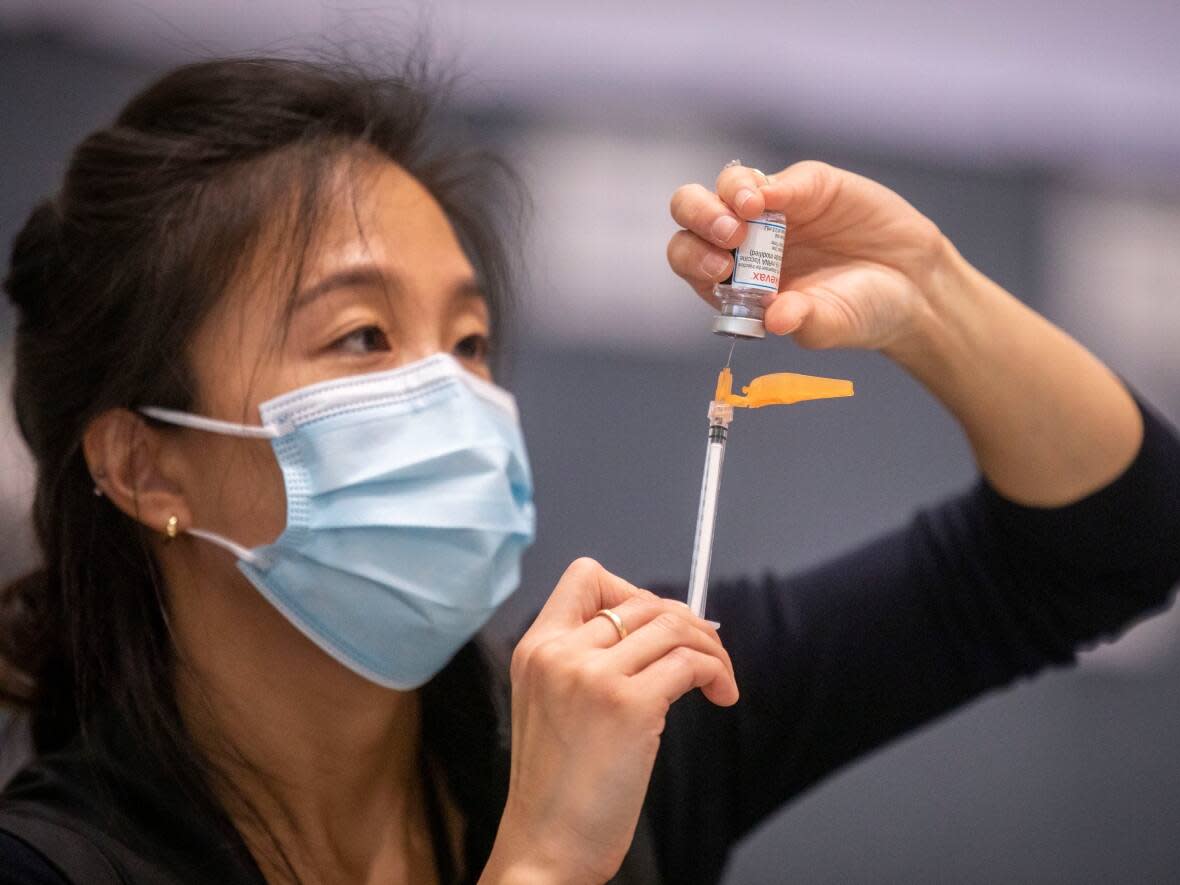No word on spring COVID-19 vaccine boosters in N.B., as N.S. launches campaign

Nova Scotia has launched its spring COVID-19 vaccine booster campaign, but there is no word yet on New Brunswick's plans.
Nova Scotia has accepted a discretionary recommendation by the National Advisory Committee on Immunization for a spring booster dose for people at highest risk because of the ongoing circulation of COVID-19, and anticipates a fall booster for the general population, Public Health announced Friday.
CBC News asked the New Brunswick Department of Health whether it plans to follow suit.
"Public Health continues to review recommendations from the National Advisory Committee on Immunization, and it will communicate any further COVID-19 vaccine booster updates as it has in the past," spokesperson Sean Hatchard said in an emailed statement.
Last month, the department told CBC no further doses were recommended at that time.
People who received a fall dose — whether it was a bivalent product or a traditional monovalent product — are considered up to date, department spokesperson Adam Bowie had said.
"To be fully vaccinated and up to date, Public Health recommends that you complete all doses in your primary series and get one fall/winter booster dose with an mRNA vaccine. An mRNA bivalent vaccine is the preferred product for a fall/winter booster dose," Bowie had said in an emailed statement.
Highest risk
In Nova Scotia, starting immediately, the following people can get another dose of COVID-19 vaccine, if it's been at least six months since their last dose or infection:
Adults aged 80 or older.
Adults living in long-term care, nursing homes, senior congregate living settings or residential care facilities.
The following groups can also consider receiving a spring dose:
People 65 to 79 years old.
People of African descent aged 50 to 79.
Indigenous people aged 50 to 79.
Those who aren't eligible for a spring dose but have had the recommended vaccinations are "well protected," Dr. Robert Strang, Nova Scotia's chief medical officer of health, said in a statement.
"Many Nova Scotians have developed immunity to COVID-19 from vaccination and infection, and there is good evidence they have strong, long-lasting protection," he said.
People who have received a booster dose since Sept. 19 are considered to be up to date.
Nova Scotia has also updated the interval between COVID-19 vaccine booster doses and/or infection to six months for all people, based on NACI recommendations.
The spring dose will only be available in Nova Scotia until June 30.
Public Health anticipates there will be a fall vaccination program to "address expected surges of respiratory infections in late fall and winter," according to a news release.
30.3% double boosted
It's unclear how many New Brunswickers had a fall booster and are considered up to date, but as of Tuesday, 30.3 per cent of the eligible population has received a second booster.
Vaccine uptake has dropped off in recent months.
New Brunswick approved second boosters for people aged 18 or older in July and bivalent boosters for people aged 18 or older in October.


